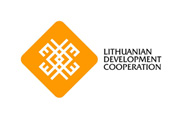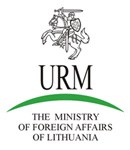Gender Inequality Makes Everyone Worse Off
“The lion’s whelps are equal (alike lions), be they male or female." That is how Shota Rustaveli, Georgia’s national poet, heralded King (not Queen) Tamar’s accession to the throne in 12th century. That Georgia had a female ruler so long ago is often cited - alongside the traditional supra toast to women - as proof that men and women are equal in Georgia.
But the reality is very different, as a recent report by the United Nations Development Programme (UNDP) points out. Women in Georgia outperform men in higher education, but earn about 40% less. Politically, women comprise 59% of eligible voters, but only 11% of elected politicians. As a result, Georgia ranks 71st out of 137 countries in UNDP’s gender inequality index.
Who cares? The Patriarch, who is by far the most trusted public figure in Georgia, pushes a traditional line on gender roles. In his Christmas Epistle in January 2014, he said that a man is “the guardian, breadwinner… and clergyman of his house”, while a woman should “take care of the house…and raise the children”. “A Georgian woman always has been and still is a pillar of the family”, he added during his Easter message on April 19.
Most Georgians agree, according to UNDP. Men tend to believe that their innate qualities make them better suited to the world of work. More surprisingly, many women also justify the status quo (although to a lesser extent than men), taking pride in their roles as homemakers. Those Georgians who push for greater gender equality tend to belong to a female, educated, urban elite.
But while popular stereotypes point in one direction, daily life points in another: 30% of Georgian women earn money to support their families. Yet people of both sexes see that more as cause for regret than celebration – especially since Georgian men rarely ease the burden on working spouses by helping out more at home. Accepting the status quo may be a coping strategy for women, the UNDP report suggests, particularly given social pressure to conform.
Rights and Wrongs
Activists who push for greater gender equality insist that it is a matter of fundamental human rights. In a modern democratic society, they point out, men and women should have equal opportunities as a point of principle.
The Soviet system guaranteed equal treatment for men and women in education and employment. But advances in public life were not mirrored in domestic affairs, where traditional attitudes reigned supreme. In legal terms, at least, Georgia has made progress since independence: the 2010 law on gender equality aims to ensure more equal treatment inside and outside the home.
That matters, not least because worst manifestations of gender inequality are hidden. One example is sex-selective abortion. 45% of Georgians say they would rather have a son rather than a daughter. Preferences are normal; but too often, they translate into aborted female fetuses. Georgia’s ratio of roughly 112 boys born for every 100 girls puts it on par with Azerbaijan and Armenia. Only in India and China is the problem worse.
A second example is domestic violence. Research in 2010 by the UN Population Fund (UNFPA) found that 6.9% of female respondents said they suffered physical abuse from their husbands. But with most women saying that that is private matter, the actual number may be significantly higher.
“Fortunately, some things are changing,” says Tamar Sabedashvili, who works for UN Women in Tbilisi. “Amendments to the law and public awareness campaigns are having an impact. In 2013, we found that one out of four Georgian respondents (including women and men) thinks domestic violence should be kept private, which is down from three out of four in 2010.”
“We also found that seven out of ten citizens realise that domestic violence is a crime that should be punished,” she adds. “That’s still far too low, but it’s a step the right direction.”
All this has a cost. For example, the economist Joyce Jacobsen argues that gender inequality knocked 7% off global gross domestic product (GDP) in 2010. Similarly, the absenteeism and lost productivity caused by domestic violence costs the world between 1.2% and 2% of GDP, according to the World Bank.
Nor is this just an international phenomenon. Analysis by the International School of Economics at Tbilisi State University (ISET) suggests that Georgian women are more likely to save and invest money than men, and less likely to waste it. Gender inequality, in short, makes everyone worse off.
War and Peace
The crucial point, activists say, is this: gender equality is not only about women, but also about men and the way power is distributed in society. And as Georgian experience shows, nothing illustrates this quite as clearly as armed conflict.
The brutal violence that accompanied Georgia’s wars over Abkhazia and South Ossetia was exclusively perpetrated by men. And most, but not all, of those killed in war have been male. But an unknown number of women bear other scars, such as rape - even though cultural biases and inadequate services mean that the precise number of victims remains hidden.
Those wars caused over 250,000 men and women to flee their homes. Yet anecdotal evidence suggests that women may adapt better to the trauma of displacement than men. In part, that may be because they retain a greater sense of purpose: women still face the daily challenges of keeping the family together, while men tend to lose their role in the outside world, and need to start again from scratch.
“As a result, a greater proportion of displaced women earn money to support their families than amongst the general population,” says Julia Kharashvili, who chairs the non-governmental organization IDP Women’s Association Consent.
Those dynamics underline the importance of having more women involved in peace negotiations. At present, only two women attend the official Geneva talks that bring together all parties to Georgia’s frozen conflicts - both of whom, coincidentally, are Georgian. Similarly, there is only one woman currently involved in the Incident Prevention and Response Mechanism (IPRM) for South Ossetia (again, Georgian).
Moreover, the talks benefit from closer consultation with civil society, as a recent project run by UN Women shows. When Georgian negotiators met women affected by the conflict, they were not confronted by narrowly defined “women’s issues” so much as practical domestic or community problems (such as access to drinking water or childcare) that are less of a priority for men.
Indeed, prevailing gender stereotypes may actually work in favour of having more female involvement in peace talks. As the UNDP report notes, the perception of women as more diplomatic than men may make it easier for them to reach common ground.
As Ms Kharashvili, who has participated in several dialogue meetings with people from Abkhazia and South Ossetia, puts it: “The problems that we face as women allow us to bond across the conflict lines.”
About the author:
Guy Edmunds works for the Danish Refugee Council (DRC) in Tbilisi. Any views expressed are those of the author, and do not necessarily reflect those of DRC.

 RSS
RSS Mobile
Mobile Twitter
Twitter Facebook
Facebook



